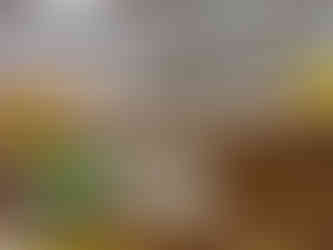Presbyterian Preschool Services has a dedicated Chinese Curriculum and Research team. Part of their work to encourage growth in their expertise and professional development includes working closely with universities in Taiwan. In the past, we have hosted aspiring preschool teachers in our schools for their internships. In each of those occasions, we have always promised that the PPS team will join them in Taiwan. We finally saw the opportunity at the end of 2023.
With the support of Little Olive Tree by Presbyterian Preschool Services and the careful planning of Yu Da University of Science and Technology (Taiwan), six curriculum specialists from the Curriculum Research and Development Department began their learning journey. They had the opportunity to visit and learn from seven different preschools, each with a distinctly different education approach. They are:
1. 爱儿群幼儿园Aierqun Aisen Kindergarten
2. 新竹县私立光明园幼儿园G.M.Y Montessori Kindergarten
3. 新竹县私立鹤雅幼儿园Heya Kindergarten
4. 苗栗县头份巿永贞国民小学附设幼儿园Yung Jen Elementary School’s Affiliated Kindergarten
5. 台北市立南海实验幼儿园Taipei Nanhai Experimental Kindergarten
6. 育达科技大学Yu Da University of Science and Technology
7. 育达科技大学附设广秀森林幼儿园Guangxiu Forest Kindergarten (in Yu Da University)
School 1: 爱儿群幼儿园 Aierqun Aisen Kindergarten

Using the inquiry-based methods, lessons and activities in Aierqun Kindergarten amalgamates the educational philosophy Reggio Emilia that originated in Italy with Taiwan’s practical agricultural education. This allows the children to develop critical thinking skills, while connecting what they are learning to what they experience in their day to day lives (practical life skills).
Farm to Classroom Tables
One of the projects we saw the children complete from start to finish was the making of egg pancakes. In Singapore, the experience would have started with the teachers bringing the children to the pantry to pick up ingredients they need. However, in Aierqun, kindergarteners planted the vegetables themselves, picked them when they were ready, washed them and cut them before incorporating them into the other cooking processes – the kneading of flour to make the egg pancakes.
What was even more remarkable was the role the teachers played in this process. Often, they were observers and facilitators who did not get involved in the entire process. Instead, they allowed the children to get their hands dirty. It was so inspiring to see grease, one of our five learning dispositions, lived out in the lives of these 5 year old chefs.
Of course, we were lucky partakers of their delicious pancakes too!

School Two: 光明园幼儿园 G.M.Y Montessori Kindergarten

The teams’ second stop was G.M.Y. Montessori Kindergarten. While it boasts similarities in methods and outcomes as the Reggio Emilia approach, this educational philosophy places emphasis on daily life training. It encourages active learning and independent thinking through the use of thoughtful learning environments and Montessori teaching aids.
This privately run kindergarten is a family business. Johnson, the current Principal, took over the running of the school after he returned from his studies in the United Kingdom. His desire is to share the love of Jesus with all the children who would come through his doors. He believes that through love and the teaching of practical life skills under the Montessori approach, children will grow to be confident and independent individuals.
School Three: 鹤雅幼儿园 Heya Kindergarten
The next school the team visited was unique in two ways. One, the school grounds were distinctly pink. Next, the founder of the school, being a very private individual, has never accepted the interview or school visits from outsiders either. Our team was so thankful and appreciative of the grace and hospitality shown towards us.
Heya Kindergarten employs the educational philosophy of Rudolf Steiner - anthroposophy. It employs mainly natural means in order to encourage creativity and educational opportunities. The outcome of the Waldorf educational philosophy? Holistic wellbeing of the children - not just in their learning and development, but also their overall wellbeing including mental health.
We could see that the school compound was very unique. The founder’s love for the children was also evident in every corner of the school. There was much room for artistic expression and yet, was full of warmth undergirded and surrounded by nature.
School Four: 永贞国 Yung Jen Elementary School’s Affiliated Kindergarten
Unlike the other schools we have visited so far, this kindergarten the team visited next was part of an elementary school. Children across a vast age difference co-existed and learnt together in one school compound!
The team was once again treated to another educational approach, This time, one which boasted of the children’s independent discovery, exploration and learning. There was an abundance of learning centre activities. Unlike the preschool education we would be familiar with, this preschool runs on no teaching plans or fixed curriculum syllabus! Instead, the children were learning predominantly through play! There were plenty of games designed to allow the children to still develop the skills they needed.
The rules of learning through play here were: none. Indeed, there were no rules as long as the children were safe and were playing respectfully, They were allowed and encouraged to develop their own game play. They could also put a pause on some of the games they designed on their own to carry on playing the next day!
Here, the children experienced to the fullest the potential play holds for learning. Here, the children could exude their childlike-ness in its purest form.
School Five: 台北南海实验幼儿园 Taipei Nanhai Experimental Kindergarten

Next, we visited a public kindergarten. The vastness of the school grounds, activity spaces as well as the classrooms were objects of envy for us who hail from the land-scarce Singapore, where most of our preschools are located at the void deck of our public housing blocks.
Even though this was a public school, it is known to be a prestigious one, affording children from middle and low-income families with opportunities to grow and play.
The expansive grounds came with great opportunities for learning. We saw many thoughtfully set up learning spaces that encouraged inquiry-based projects and learning. There were also many equipment and facilities that provided children with opportunities to explore independently, or with the facilitation of their teachers.
There were spaces to manufacture their own recycled paper, life-sized construction sets, pottery and clay making equipment, just to name a few. We were floored by the accessibility of such rare experiences for children in the preschool age. It would be so great to bring these practices and spaces back to Singapore!
School 6: 育达科技大学 Yu Da University of Science and Technology
One of the team’s final stops during this learning journey was Yu Da University of Science and Technology, our close educational partner whose students we have hosted in our preschools in Singapore. This is also the school that planned this exchange experience for us. It was an inspiring time to get to know our host university better. We learnt that Yu Da is a privately founded university by an individual who has great love for educating the next generation.
Dr. Wang Guangya was originally from Henan, China. Through his hard work and savings, he managed to set up several schools meant for children across all age groups. He was fuelled by the deep belief that education is what transforms one’s life. Today, schools that he set up includes universities, high schools, vocational institutions, and kindergartens. His relentless spirit inspires us to keep on keeping on in building a strong foundation in truth, beauty and goodness for our young ones in Singapore. May many more dedicate their lives to provide education for the next generation.
School 7: 广秀森林幼儿园 Guangxiu Forest Kindergarten (in Yu Da University)

While at Yu Da, we also visited the Guangxiu Forest Kindergarten located within the university compound. As its name suggests, it is located within a lush forest. The quiet, calming and spacious environment is a stark constrast to how schools are set up in the more urban areas.
In Guangxiu, children spend much of their time outdoors. Their preschool education includes growining produce like pumpkins, sweet potatoes and vegetables.
They get to plant the seeds and also taste the fruit of their labour during harvest seasons. They also get to cook what they have planted. What an exciting way of equipping the children with skill sets that they need!
Over the course of 8 days and 7 school visits, the Chinese Team experienced a variety of educational philosophies, models, approaches and methods. Yet, at the centre of it all, our team recognises that it is the love of the educator that fuels all these efforts. It gives us the courage to keep pressing on when times are difficult and to sacrificially sow seeds of love in hopes of transformed lives in the years to come.
These eight days went by in a blink of an eye. They were also providential in enriching the perspectives and expanding the knowledge of our Chinese Curriculum and Research Team. They, after all, are integral in the transformation of our Mandarin learning programme in the Little Olive Tree Preschools in Singapore.
Education knows no borders and bo bounds. Be it in Taiwan or Singapore, we aspire to love and teach all children as though they are our own, “training up a child in the way they should go: and when they are old, they will not depart from it.”























Comments